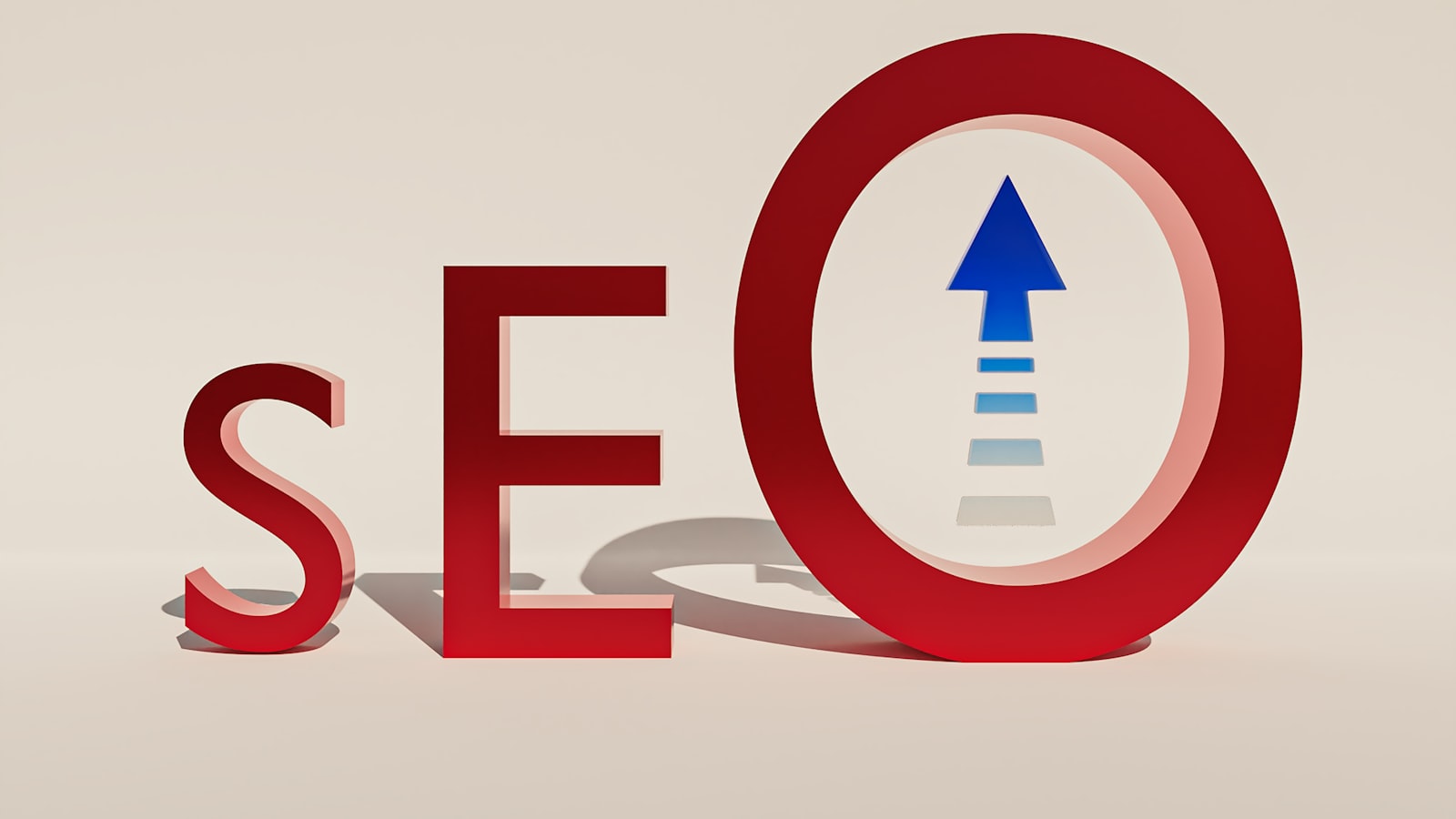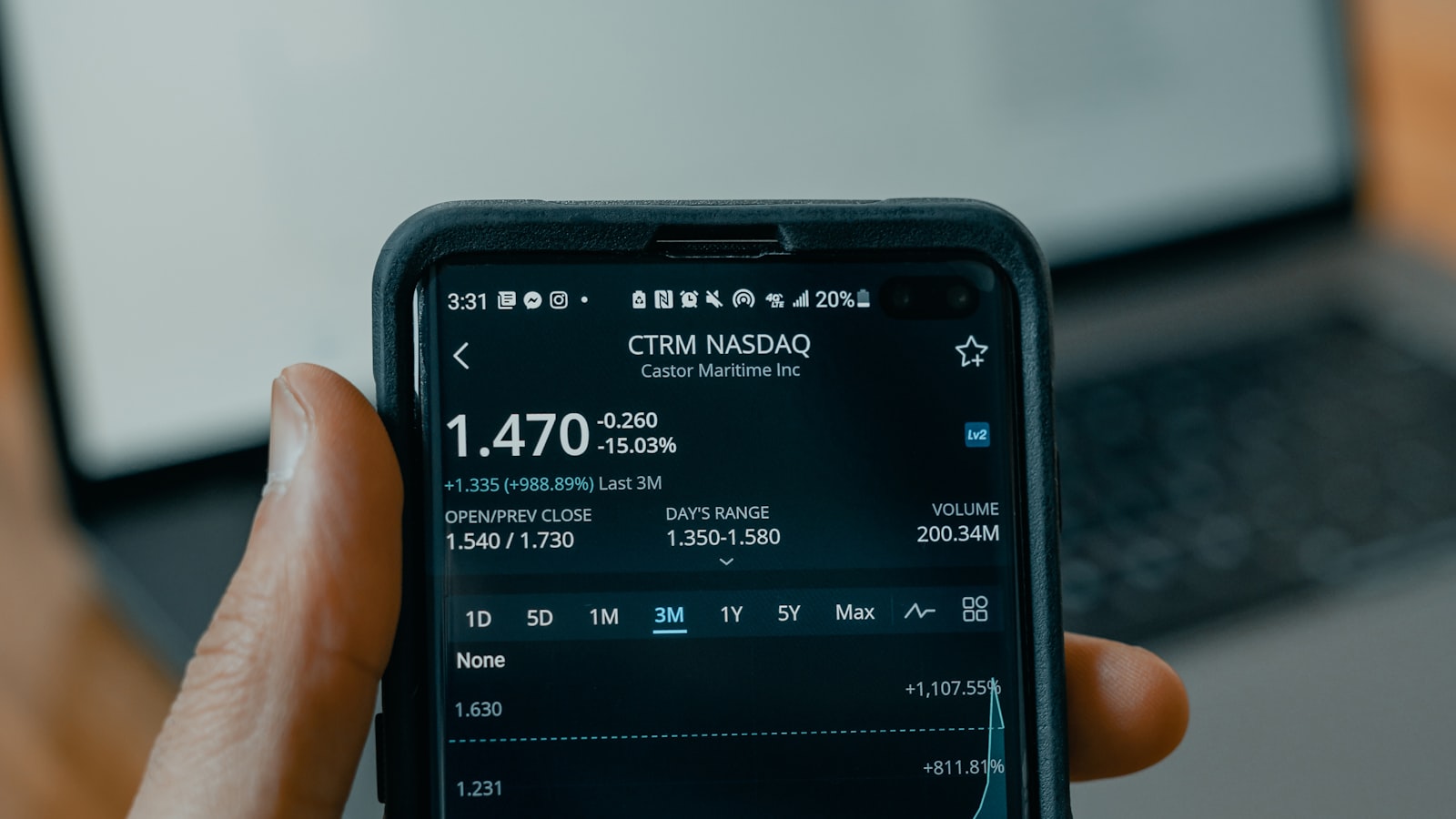Using AI Tools to Enhance Programmatic SEO for Ecommerce
Using AI Tools to Enhance Programmatic SEO for Ecommerce
Using AI Tools to Enhance Programmatic SEO for Ecommerce
Boost your ecommerce site's visibility with AI tools for programmatic SEO. Learn how AI can enhance your SEO strategy and drive more traffic.
Boost your ecommerce site's visibility with AI tools for programmatic SEO. Learn how AI can enhance your SEO strategy and drive more traffic.



Introduction to Programmatic SEO for Ecommerce
Imagine being able to optimize thousands of product listings on your ecommerce site in a fraction of the time it would take manually. This is the promise of programmatic SEO, a strategy that leverages automation to enhance search engine visibility and drive organic traffic. With the rise of AI tools SEO, this approach has become even more powerful, offering ecommerce businesses a competitive edge in a crowded market.
What is Programmatic SEO?
Programmatic SEO involves using automation and scripts to create and optimize a large volume of web pages. By automating repetitive tasks, businesses can ensure their entire site is SEO-friendly without the need for extensive manual effort. This technique is particularly beneficial for ecommerce sites, where managing thousands of product pages individually would be impractical.
Efficiency: Automates repetitive SEO tasks, saving time and resources.
Scalability: Easily applies SEO best practices across thousands of pages.
Consistency: Ensures uniform application of SEO strategies, reducing human error.
Why Ecommerce Businesses Should Care About Programmatic SEO
In the highly competitive world of ecommerce, standing out in search engine results is crucial. Programmatic SEO allows businesses to optimize their entire product catalog efficiently, improving their chances of ranking higher in search results. This not only drives more organic traffic but also enhances the overall user experience by providing well-structured, easily navigable pages.
Furthermore, integrating AI tools SEO into programmatic strategies can significantly enhance their effectiveness. AI can analyze vast amounts of data to identify trends and opportunities, enabling more precise and impactful optimizations. For ecommerce businesses, this means better-targeted content, improved keyword strategies, and ultimately, higher conversion rates.
By the end of this article, you'll understand how to leverage AI-driven programmatic SEO to boost your ecommerce site's performance. We'll explore practical strategies, real-world examples, and actionable tips to help you get started.
The Role of AI Tools in Programmatic SEO
How AI Enhances SEO Strategies
Artificial Intelligence (AI) is revolutionizing SEO strategies by automating and optimizing various aspects of the process. AI tools analyze vast amounts of data quickly, providing insights that would be nearly impossible for humans to gather manually. Here's how AI enhances SEO strategies:
Data Analysis: AI tools can process and analyze large datasets to identify trends and patterns. This helps in understanding user behavior, search intent, and the effectiveness of SEO efforts.
Keyword Research: AI-powered tools like Ahrefs and SEMrush can identify high-potential keywords by analyzing search volumes, competition, and relevance. This ensures that your content targets the right keywords for maximum visibility.
Content Creation: AI tools such as Jasper and ChatGPT can generate high-quality content based on predefined templates and keywords. This speeds up content production while maintaining consistency and relevance.
SEO Optimization: AI-driven platforms can optimize on-page elements like meta tags, headers, and images. They can also suggest internal linking opportunities to enhance site structure and user experience.
Performance Monitoring: AI tools continuously monitor the performance of your SEO efforts, providing real-time data and insights. This allows for quick adjustments and improvements to maintain or boost rankings.
Benefits of Using AI for Ecommerce SEO
Integrating AI tools into your ecommerce SEO strategy offers numerous benefits. Here are some key advantages:
Scalability: AI tools enable the creation and optimization of thousands of product pages efficiently. This is crucial for large ecommerce sites with extensive inventories.
Personalization: AI can tailor content and recommendations based on user behavior and preferences, enhancing the shopping experience and increasing conversion rates.
Time Efficiency: Automating repetitive tasks like keyword research, content generation, and performance monitoring saves time, allowing your team to focus on strategic initiatives.
Improved Accuracy: AI tools minimize human errors in data analysis and content creation, ensuring that your SEO efforts are precise and effective.
Competitive Advantage: Leveraging AI for SEO can give your ecommerce business a competitive edge by staying ahead of trends and quickly adapting to changes in search algorithms.

For more insights on AI and SEO, check out resources on Search Engine Journal, Moz, and Search Engine Land. These platforms regularly discuss the latest trends and tools in the industry.
Steps to Implement Programmatic SEO with AI Tools

Step 1: Audience Analysis
Understanding your audience is the foundation of any effective SEO strategy. Use AI tools to gather insights about your target demographics, their preferences, and behavior online. This data will help you tailor your content to meet their needs and improve engagement.
Use tools like Google Analytics to track user behavior.
Leverage social media analytics to understand audience interests.
Utilize customer feedback and surveys for deeper insights.
Step 2: Data-Driven Keyword Research
Keyword research is crucial for identifying the terms your audience uses to find products or services like yours. AI tools can analyze vast amounts of data to pinpoint the most effective keywords.
Use tools like SEMrush or Ahrefs for comprehensive keyword analysis.
Identify long-tail keywords that have lower competition.
Analyze competitor keywords to find gaps in your strategy.
Step 3: Content Template Creation
Creating a consistent content template ensures that all your pages are optimized and follow a standard structure. AI tools can help in generating templates that are SEO-friendly and tailored to your audience.
Define the structure of your content, including headings, subheadings, and bullet points.
Ensure each template includes meta tags, alt text for images, and internal links.
Use AI tools to automate the creation of these templates, saving time and ensuring consistency.
Step 4: AI-Powered Content Generation
With your templates in place, AI-powered content generation tools can help you create high-quality content at scale. These tools can produce articles, product descriptions, and other content types based on your predefined templates.
Use tools like GPT-3 or Jasper for content generation.
Ensure the content is unique and relevant to your audience.
Regularly update and refine the AI-generated content to keep it fresh and engaging.
Step 5: SEO Optimization
Optimizing your content for search engines is essential for improving your rankings. AI tools can assist in identifying optimization opportunities and implementing best practices.
Use tools like Yoast SEO for on-page optimization.
Ensure your content includes target keywords naturally.
Optimize images, meta descriptions, and URLs for better search engine visibility.
Step 6: Quality Assurance
Quality assurance ensures that your content meets the highest standards before it goes live. AI tools can help in checking for errors, ensuring readability, and maintaining consistency.
Use tools like Grammarly for grammar and spelling checks.
Leverage readability tools to ensure your content is easy to understand.
Conduct regular audits to maintain content quality over time.
Step 7: Performance Monitoring and Testing
Monitoring and testing the performance of your SEO efforts is crucial for continuous improvement. AI tools can provide insights into how your content is performing and suggest areas for optimization.
Use tools like Google Search Console to track your site's performance.
Analyze traffic patterns and user engagement metrics.
Regularly test different strategies to see what works best for your audience.
Types of Keywords for Programmatic SEO

Head Terms
Head terms are broad keywords that typically have high search volumes. These are often one or two words long and cover a wide topic area. For example, in the ecommerce sector, keywords like shoes or laptops are considered head terms. While these keywords attract a lot of traffic, they are also highly competitive, making them challenging to rank for.
Body Keywords
Body keywords are slightly more specific than head terms and usually consist of two to three words. They still have a decent search volume but are less competitive than head terms. Examples include running shoes or gaming laptops. These keywords strike a balance between search volume and competition, making them valuable for programmatic SEO.
Long-Tail Keywords
Long-tail keywords are highly specific phrases that usually contain three or more words. They have lower search volumes but are easier to rank for due to their specificity. For instance, best running shoes for flat feet or affordable gaming laptops under $500 are long-tail keywords. These keywords are crucial for targeting niche markets and capturing highly targeted traffic.
LSI Keywords (Latent Semantic Indexing)
LSI keywords are terms and phrases that are semantically related to your main keyword. They help search engines understand the context of your content. For example, if your main keyword is digital marketing, LSI keywords might include SEO, content marketing, and social media strategy. Incorporating LSI keywords can improve your content's relevance and ranking potential.
Geo-Targeted Keywords
Geo-targeted keywords include location-specific terms to attract local traffic. These keywords are essential for businesses that operate in specific geographic areas. Examples include best pizza in New York or plumbers in Los Angeles. Using geo-targeted keywords helps you reach a local audience and improve your visibility in local search results.
Question-Based Keywords
Question-based keywords are queries that users type into search engines, often in the form of questions. These keywords are excellent for capturing informational search intent. Examples include how to clean running shoes or what is the best laptop for gaming? Optimizing for question-based keywords can help you appear in featured snippets and voice search results, driving more organic traffic to your site.
For more insights on optimizing your ecommerce site with AI tools, check out our SEO and Digital Marketing Blogs or explore Ecommerce Platforms like Shopify and BigCommerce. Additionally, AI Technology Blogs provide valuable perspectives on integrating AI with SEO strategies.
Top AI Tools for Programmatic SEO
SEOmatic
SEOmatic.ai offers a powerful tool to automate and scale web pages for SEO and PPC strategies on any CMS platform. This tool is designed to significantly boost traffic, leads, and sales without requiring a large team or coding skills. Key features include:
Easy Setup: Get started in minutes with no coding required.
Scalable Pricing: Friendly pricing that scales with your needs.
Free Trial: 7-day free trial with the option to cancel anytime.
Integration: Easily integrate with your existing CMS or use SEOmatic's custom hosting.
Dynamic Content: Automatically generate unique, data-driven content with keyword modifiers and scheduling tools.
Generative AI: Use custom AI prompts, autoblogging AI, and Spintax generator to create personalized content.
SEO Optimization: Pages are optimized for fast loading and excellent SEO out of the box.
Lead Generation: High-converting landing pages with integrated lead magnets and opt-in tools.
Datasets: Access a library of datasets or upload your own for customized content.
Export Options: Export generated content to CSV or JSON files.
Custom Domains and SSL: Personalize your domain and let SEOmatic handle SSL certificates.
Customer testimonials highlight the ease of use and significant time savings. SEOmatic also provides in-depth feature comparisons with other tools to help you make an informed decision.
PageFactory
PageFactory is another robust AI tool designed to streamline the creation of SEO-friendly web pages. It focuses on automating content production and optimization. Key features include:
Template-Based Content Creation: Use pre-designed templates to quickly generate pages.
Keyword Integration: Automatically integrates keywords into content for better SEO performance.
Content Scheduling: Schedule content publication to maintain a consistent posting schedule.
Real-Time Analytics: Monitor the performance of your pages with real-time analytics.
PageFactory is particularly useful for ecommerce businesses looking to scale their content production without compromising on quality.
Byword AI
Byword AI leverages advanced AI algorithms to generate high-quality content tailored to specific keywords and topics. This tool is ideal for businesses aiming to enhance their content marketing strategies. Key features include:
AI-Powered Content Generation: Create unique, SEO-optimized content with minimal effort.
Topic Suggestions: Get topic suggestions based on trending keywords and user interests.
Content Customization: Customize the tone and style of the generated content to match your brand voice.
Plagiarism Detection: Ensure all content is original with built-in plagiarism detection tools.
Byword AI is perfect for businesses looking to enhance their content marketing efforts with minimal manual input.
Bulk Publishing AI
Bulk Publishing AI is designed to help businesses manage large-scale content production efficiently. This tool automates the creation and publication of content across multiple platforms. Key features include:
Mass Content Generation: Generate large volumes of content quickly and efficiently.
Multi-Platform Publishing: Publish content across various platforms simultaneously.
Content Optimization: Automatically optimize content for SEO before publication.
Performance Tracking: Track the performance of your content across different platforms.
Bulk Publishing AI is ideal for businesses that need to manage extensive content campaigns without overwhelming their resources.
Other Notable Tools
In addition to the tools mentioned above, several other AI tools can enhance programmatic SEO efforts:
MarketMuse: Provides AI-driven content research and optimization to improve SEO performance.
SEMrush: Offers a comprehensive suite of SEO tools, including keyword research and competitor analysis.
Ahrefs: Known for its robust backlink analysis and keyword research capabilities.
These tools offer a variety of features that can help ecommerce businesses optimize their SEO strategies and drive organic traffic.

Case Studies: Successful Ecommerce Sites Using AI for Programmatic SEO

Case Study 1: Company A
Company A, a leading online retailer in the fashion industry, leveraged AI tools to enhance their programmatic SEO strategy. By utilizing AI-powered keyword research tools, they identified high-potential long-tail keywords that were previously overlooked. These insights allowed them to create targeted content that resonated with their audience.
Challenge: High competition in the fashion ecommerce space.
Solution: Implementing AI-driven keyword research and content generation tools.
Outcome: A 35% increase in organic traffic and a 20% boost in conversion rates within six months.
For more insights on how AI can transform your SEO strategy, check out Search Engine Journal.
Case Study 2: Company B
Company B, an ecommerce platform specializing in home decor, faced the challenge of managing a vast inventory with thousands of products. They adopted AI tools for programmatic SEO to automate the creation of product pages, ensuring each page was optimized for search engines.
Challenge: Managing SEO for a large inventory.
Solution: Using AI tools to automate content creation and optimization.
Outcome: A 50% reduction in manual SEO efforts and a 25% increase in search engine rankings for product pages.
Learn more about optimizing ecommerce sites on platforms like Shopify.
Case Study 3: Company C
Company C, a global electronics retailer, integrated AI tools to enhance their programmatic SEO efforts. By using AI for audience analysis and content generation, they were able to create personalized landing pages that matched user intent, leading to higher engagement and sales.
Challenge: Creating personalized content at scale.
Solution: Implementing AI for audience analysis and dynamic content generation.
Outcome: A 40% increase in user engagement and a 30% rise in sales conversions.
Explore more about AI and SEO strategies on Moz.
Conclusion
Key Takeaways
Incorporating AI tools into your programmatic SEO strategy can significantly enhance your ecommerce business. Here are the key points to remember:
Efficiency: AI tools streamline keyword research, content creation, and SEO optimization, saving time and resources.
Accuracy: Data-driven insights provided by AI ensure that your SEO strategies are precise and effective.
Scalability: AI enables you to manage and optimize large volumes of content, making it easier to scale your SEO efforts.
Performance Monitoring: Continuous monitoring and testing with AI tools help maintain and improve your SEO performance over time.
Future Trends in AI and Programmatic SEO
As technology evolves, several trends are emerging in the intersection of AI and programmatic SEO:
Personalization: AI will enable more personalized content experiences, tailoring SEO strategies to individual user preferences and behaviors.
Voice Search Optimization: With the rise of voice-activated devices, optimizing for voice search will become increasingly important. AI can help identify and target voice search queries effectively.
Predictive Analytics: AI will offer predictive analytics to forecast trends and user behavior, allowing for more proactive SEO strategies.
Automated Content Creation: Advanced AI tools will further automate content creation, ensuring high-quality, SEO-optimized content at scale.
Enhanced User Experience: AI will play a crucial role in improving user experience by analyzing user interactions and making data-driven adjustments to site structure and content.
For more insights on leveraging AI tools for SEO, you can explore resources on Search Engine Journal, Moz, and Search Engine Land. Additionally, ecommerce platforms like Shopify and BigCommerce offer valuable information on optimizing ecommerce sites.

Introduction to Programmatic SEO for Ecommerce
Imagine being able to optimize thousands of product listings on your ecommerce site in a fraction of the time it would take manually. This is the promise of programmatic SEO, a strategy that leverages automation to enhance search engine visibility and drive organic traffic. With the rise of AI tools SEO, this approach has become even more powerful, offering ecommerce businesses a competitive edge in a crowded market.
What is Programmatic SEO?
Programmatic SEO involves using automation and scripts to create and optimize a large volume of web pages. By automating repetitive tasks, businesses can ensure their entire site is SEO-friendly without the need for extensive manual effort. This technique is particularly beneficial for ecommerce sites, where managing thousands of product pages individually would be impractical.
Efficiency: Automates repetitive SEO tasks, saving time and resources.
Scalability: Easily applies SEO best practices across thousands of pages.
Consistency: Ensures uniform application of SEO strategies, reducing human error.
Why Ecommerce Businesses Should Care About Programmatic SEO
In the highly competitive world of ecommerce, standing out in search engine results is crucial. Programmatic SEO allows businesses to optimize their entire product catalog efficiently, improving their chances of ranking higher in search results. This not only drives more organic traffic but also enhances the overall user experience by providing well-structured, easily navigable pages.
Furthermore, integrating AI tools SEO into programmatic strategies can significantly enhance their effectiveness. AI can analyze vast amounts of data to identify trends and opportunities, enabling more precise and impactful optimizations. For ecommerce businesses, this means better-targeted content, improved keyword strategies, and ultimately, higher conversion rates.
By the end of this article, you'll understand how to leverage AI-driven programmatic SEO to boost your ecommerce site's performance. We'll explore practical strategies, real-world examples, and actionable tips to help you get started.
The Role of AI Tools in Programmatic SEO
How AI Enhances SEO Strategies
Artificial Intelligence (AI) is revolutionizing SEO strategies by automating and optimizing various aspects of the process. AI tools analyze vast amounts of data quickly, providing insights that would be nearly impossible for humans to gather manually. Here's how AI enhances SEO strategies:
Data Analysis: AI tools can process and analyze large datasets to identify trends and patterns. This helps in understanding user behavior, search intent, and the effectiveness of SEO efforts.
Keyword Research: AI-powered tools like Ahrefs and SEMrush can identify high-potential keywords by analyzing search volumes, competition, and relevance. This ensures that your content targets the right keywords for maximum visibility.
Content Creation: AI tools such as Jasper and ChatGPT can generate high-quality content based on predefined templates and keywords. This speeds up content production while maintaining consistency and relevance.
SEO Optimization: AI-driven platforms can optimize on-page elements like meta tags, headers, and images. They can also suggest internal linking opportunities to enhance site structure and user experience.
Performance Monitoring: AI tools continuously monitor the performance of your SEO efforts, providing real-time data and insights. This allows for quick adjustments and improvements to maintain or boost rankings.
Benefits of Using AI for Ecommerce SEO
Integrating AI tools into your ecommerce SEO strategy offers numerous benefits. Here are some key advantages:
Scalability: AI tools enable the creation and optimization of thousands of product pages efficiently. This is crucial for large ecommerce sites with extensive inventories.
Personalization: AI can tailor content and recommendations based on user behavior and preferences, enhancing the shopping experience and increasing conversion rates.
Time Efficiency: Automating repetitive tasks like keyword research, content generation, and performance monitoring saves time, allowing your team to focus on strategic initiatives.
Improved Accuracy: AI tools minimize human errors in data analysis and content creation, ensuring that your SEO efforts are precise and effective.
Competitive Advantage: Leveraging AI for SEO can give your ecommerce business a competitive edge by staying ahead of trends and quickly adapting to changes in search algorithms.

For more insights on AI and SEO, check out resources on Search Engine Journal, Moz, and Search Engine Land. These platforms regularly discuss the latest trends and tools in the industry.
Steps to Implement Programmatic SEO with AI Tools

Step 1: Audience Analysis
Understanding your audience is the foundation of any effective SEO strategy. Use AI tools to gather insights about your target demographics, their preferences, and behavior online. This data will help you tailor your content to meet their needs and improve engagement.
Use tools like Google Analytics to track user behavior.
Leverage social media analytics to understand audience interests.
Utilize customer feedback and surveys for deeper insights.
Step 2: Data-Driven Keyword Research
Keyword research is crucial for identifying the terms your audience uses to find products or services like yours. AI tools can analyze vast amounts of data to pinpoint the most effective keywords.
Use tools like SEMrush or Ahrefs for comprehensive keyword analysis.
Identify long-tail keywords that have lower competition.
Analyze competitor keywords to find gaps in your strategy.
Step 3: Content Template Creation
Creating a consistent content template ensures that all your pages are optimized and follow a standard structure. AI tools can help in generating templates that are SEO-friendly and tailored to your audience.
Define the structure of your content, including headings, subheadings, and bullet points.
Ensure each template includes meta tags, alt text for images, and internal links.
Use AI tools to automate the creation of these templates, saving time and ensuring consistency.
Step 4: AI-Powered Content Generation
With your templates in place, AI-powered content generation tools can help you create high-quality content at scale. These tools can produce articles, product descriptions, and other content types based on your predefined templates.
Use tools like GPT-3 or Jasper for content generation.
Ensure the content is unique and relevant to your audience.
Regularly update and refine the AI-generated content to keep it fresh and engaging.
Step 5: SEO Optimization
Optimizing your content for search engines is essential for improving your rankings. AI tools can assist in identifying optimization opportunities and implementing best practices.
Use tools like Yoast SEO for on-page optimization.
Ensure your content includes target keywords naturally.
Optimize images, meta descriptions, and URLs for better search engine visibility.
Step 6: Quality Assurance
Quality assurance ensures that your content meets the highest standards before it goes live. AI tools can help in checking for errors, ensuring readability, and maintaining consistency.
Use tools like Grammarly for grammar and spelling checks.
Leverage readability tools to ensure your content is easy to understand.
Conduct regular audits to maintain content quality over time.
Step 7: Performance Monitoring and Testing
Monitoring and testing the performance of your SEO efforts is crucial for continuous improvement. AI tools can provide insights into how your content is performing and suggest areas for optimization.
Use tools like Google Search Console to track your site's performance.
Analyze traffic patterns and user engagement metrics.
Regularly test different strategies to see what works best for your audience.
Types of Keywords for Programmatic SEO

Head Terms
Head terms are broad keywords that typically have high search volumes. These are often one or two words long and cover a wide topic area. For example, in the ecommerce sector, keywords like shoes or laptops are considered head terms. While these keywords attract a lot of traffic, they are also highly competitive, making them challenging to rank for.
Body Keywords
Body keywords are slightly more specific than head terms and usually consist of two to three words. They still have a decent search volume but are less competitive than head terms. Examples include running shoes or gaming laptops. These keywords strike a balance between search volume and competition, making them valuable for programmatic SEO.
Long-Tail Keywords
Long-tail keywords are highly specific phrases that usually contain three or more words. They have lower search volumes but are easier to rank for due to their specificity. For instance, best running shoes for flat feet or affordable gaming laptops under $500 are long-tail keywords. These keywords are crucial for targeting niche markets and capturing highly targeted traffic.
LSI Keywords (Latent Semantic Indexing)
LSI keywords are terms and phrases that are semantically related to your main keyword. They help search engines understand the context of your content. For example, if your main keyword is digital marketing, LSI keywords might include SEO, content marketing, and social media strategy. Incorporating LSI keywords can improve your content's relevance and ranking potential.
Geo-Targeted Keywords
Geo-targeted keywords include location-specific terms to attract local traffic. These keywords are essential for businesses that operate in specific geographic areas. Examples include best pizza in New York or plumbers in Los Angeles. Using geo-targeted keywords helps you reach a local audience and improve your visibility in local search results.
Question-Based Keywords
Question-based keywords are queries that users type into search engines, often in the form of questions. These keywords are excellent for capturing informational search intent. Examples include how to clean running shoes or what is the best laptop for gaming? Optimizing for question-based keywords can help you appear in featured snippets and voice search results, driving more organic traffic to your site.
For more insights on optimizing your ecommerce site with AI tools, check out our SEO and Digital Marketing Blogs or explore Ecommerce Platforms like Shopify and BigCommerce. Additionally, AI Technology Blogs provide valuable perspectives on integrating AI with SEO strategies.
Top AI Tools for Programmatic SEO
SEOmatic
SEOmatic.ai offers a powerful tool to automate and scale web pages for SEO and PPC strategies on any CMS platform. This tool is designed to significantly boost traffic, leads, and sales without requiring a large team or coding skills. Key features include:
Easy Setup: Get started in minutes with no coding required.
Scalable Pricing: Friendly pricing that scales with your needs.
Free Trial: 7-day free trial with the option to cancel anytime.
Integration: Easily integrate with your existing CMS or use SEOmatic's custom hosting.
Dynamic Content: Automatically generate unique, data-driven content with keyword modifiers and scheduling tools.
Generative AI: Use custom AI prompts, autoblogging AI, and Spintax generator to create personalized content.
SEO Optimization: Pages are optimized for fast loading and excellent SEO out of the box.
Lead Generation: High-converting landing pages with integrated lead magnets and opt-in tools.
Datasets: Access a library of datasets or upload your own for customized content.
Export Options: Export generated content to CSV or JSON files.
Custom Domains and SSL: Personalize your domain and let SEOmatic handle SSL certificates.
Customer testimonials highlight the ease of use and significant time savings. SEOmatic also provides in-depth feature comparisons with other tools to help you make an informed decision.
PageFactory
PageFactory is another robust AI tool designed to streamline the creation of SEO-friendly web pages. It focuses on automating content production and optimization. Key features include:
Template-Based Content Creation: Use pre-designed templates to quickly generate pages.
Keyword Integration: Automatically integrates keywords into content for better SEO performance.
Content Scheduling: Schedule content publication to maintain a consistent posting schedule.
Real-Time Analytics: Monitor the performance of your pages with real-time analytics.
PageFactory is particularly useful for ecommerce businesses looking to scale their content production without compromising on quality.
Byword AI
Byword AI leverages advanced AI algorithms to generate high-quality content tailored to specific keywords and topics. This tool is ideal for businesses aiming to enhance their content marketing strategies. Key features include:
AI-Powered Content Generation: Create unique, SEO-optimized content with minimal effort.
Topic Suggestions: Get topic suggestions based on trending keywords and user interests.
Content Customization: Customize the tone and style of the generated content to match your brand voice.
Plagiarism Detection: Ensure all content is original with built-in plagiarism detection tools.
Byword AI is perfect for businesses looking to enhance their content marketing efforts with minimal manual input.
Bulk Publishing AI
Bulk Publishing AI is designed to help businesses manage large-scale content production efficiently. This tool automates the creation and publication of content across multiple platforms. Key features include:
Mass Content Generation: Generate large volumes of content quickly and efficiently.
Multi-Platform Publishing: Publish content across various platforms simultaneously.
Content Optimization: Automatically optimize content for SEO before publication.
Performance Tracking: Track the performance of your content across different platforms.
Bulk Publishing AI is ideal for businesses that need to manage extensive content campaigns without overwhelming their resources.
Other Notable Tools
In addition to the tools mentioned above, several other AI tools can enhance programmatic SEO efforts:
MarketMuse: Provides AI-driven content research and optimization to improve SEO performance.
SEMrush: Offers a comprehensive suite of SEO tools, including keyword research and competitor analysis.
Ahrefs: Known for its robust backlink analysis and keyword research capabilities.
These tools offer a variety of features that can help ecommerce businesses optimize their SEO strategies and drive organic traffic.

Case Studies: Successful Ecommerce Sites Using AI for Programmatic SEO

Case Study 1: Company A
Company A, a leading online retailer in the fashion industry, leveraged AI tools to enhance their programmatic SEO strategy. By utilizing AI-powered keyword research tools, they identified high-potential long-tail keywords that were previously overlooked. These insights allowed them to create targeted content that resonated with their audience.
Challenge: High competition in the fashion ecommerce space.
Solution: Implementing AI-driven keyword research and content generation tools.
Outcome: A 35% increase in organic traffic and a 20% boost in conversion rates within six months.
For more insights on how AI can transform your SEO strategy, check out Search Engine Journal.
Case Study 2: Company B
Company B, an ecommerce platform specializing in home decor, faced the challenge of managing a vast inventory with thousands of products. They adopted AI tools for programmatic SEO to automate the creation of product pages, ensuring each page was optimized for search engines.
Challenge: Managing SEO for a large inventory.
Solution: Using AI tools to automate content creation and optimization.
Outcome: A 50% reduction in manual SEO efforts and a 25% increase in search engine rankings for product pages.
Learn more about optimizing ecommerce sites on platforms like Shopify.
Case Study 3: Company C
Company C, a global electronics retailer, integrated AI tools to enhance their programmatic SEO efforts. By using AI for audience analysis and content generation, they were able to create personalized landing pages that matched user intent, leading to higher engagement and sales.
Challenge: Creating personalized content at scale.
Solution: Implementing AI for audience analysis and dynamic content generation.
Outcome: A 40% increase in user engagement and a 30% rise in sales conversions.
Explore more about AI and SEO strategies on Moz.
Conclusion
Key Takeaways
Incorporating AI tools into your programmatic SEO strategy can significantly enhance your ecommerce business. Here are the key points to remember:
Efficiency: AI tools streamline keyword research, content creation, and SEO optimization, saving time and resources.
Accuracy: Data-driven insights provided by AI ensure that your SEO strategies are precise and effective.
Scalability: AI enables you to manage and optimize large volumes of content, making it easier to scale your SEO efforts.
Performance Monitoring: Continuous monitoring and testing with AI tools help maintain and improve your SEO performance over time.
Future Trends in AI and Programmatic SEO
As technology evolves, several trends are emerging in the intersection of AI and programmatic SEO:
Personalization: AI will enable more personalized content experiences, tailoring SEO strategies to individual user preferences and behaviors.
Voice Search Optimization: With the rise of voice-activated devices, optimizing for voice search will become increasingly important. AI can help identify and target voice search queries effectively.
Predictive Analytics: AI will offer predictive analytics to forecast trends and user behavior, allowing for more proactive SEO strategies.
Automated Content Creation: Advanced AI tools will further automate content creation, ensuring high-quality, SEO-optimized content at scale.
Enhanced User Experience: AI will play a crucial role in improving user experience by analyzing user interactions and making data-driven adjustments to site structure and content.
For more insights on leveraging AI tools for SEO, you can explore resources on Search Engine Journal, Moz, and Search Engine Land. Additionally, ecommerce platforms like Shopify and BigCommerce offer valuable information on optimizing ecommerce sites.

Introduction to Programmatic SEO for Ecommerce
Imagine being able to optimize thousands of product listings on your ecommerce site in a fraction of the time it would take manually. This is the promise of programmatic SEO, a strategy that leverages automation to enhance search engine visibility and drive organic traffic. With the rise of AI tools SEO, this approach has become even more powerful, offering ecommerce businesses a competitive edge in a crowded market.
What is Programmatic SEO?
Programmatic SEO involves using automation and scripts to create and optimize a large volume of web pages. By automating repetitive tasks, businesses can ensure their entire site is SEO-friendly without the need for extensive manual effort. This technique is particularly beneficial for ecommerce sites, where managing thousands of product pages individually would be impractical.
Efficiency: Automates repetitive SEO tasks, saving time and resources.
Scalability: Easily applies SEO best practices across thousands of pages.
Consistency: Ensures uniform application of SEO strategies, reducing human error.
Why Ecommerce Businesses Should Care About Programmatic SEO
In the highly competitive world of ecommerce, standing out in search engine results is crucial. Programmatic SEO allows businesses to optimize their entire product catalog efficiently, improving their chances of ranking higher in search results. This not only drives more organic traffic but also enhances the overall user experience by providing well-structured, easily navigable pages.
Furthermore, integrating AI tools SEO into programmatic strategies can significantly enhance their effectiveness. AI can analyze vast amounts of data to identify trends and opportunities, enabling more precise and impactful optimizations. For ecommerce businesses, this means better-targeted content, improved keyword strategies, and ultimately, higher conversion rates.
By the end of this article, you'll understand how to leverage AI-driven programmatic SEO to boost your ecommerce site's performance. We'll explore practical strategies, real-world examples, and actionable tips to help you get started.
The Role of AI Tools in Programmatic SEO
How AI Enhances SEO Strategies
Artificial Intelligence (AI) is revolutionizing SEO strategies by automating and optimizing various aspects of the process. AI tools analyze vast amounts of data quickly, providing insights that would be nearly impossible for humans to gather manually. Here's how AI enhances SEO strategies:
Data Analysis: AI tools can process and analyze large datasets to identify trends and patterns. This helps in understanding user behavior, search intent, and the effectiveness of SEO efforts.
Keyword Research: AI-powered tools like Ahrefs and SEMrush can identify high-potential keywords by analyzing search volumes, competition, and relevance. This ensures that your content targets the right keywords for maximum visibility.
Content Creation: AI tools such as Jasper and ChatGPT can generate high-quality content based on predefined templates and keywords. This speeds up content production while maintaining consistency and relevance.
SEO Optimization: AI-driven platforms can optimize on-page elements like meta tags, headers, and images. They can also suggest internal linking opportunities to enhance site structure and user experience.
Performance Monitoring: AI tools continuously monitor the performance of your SEO efforts, providing real-time data and insights. This allows for quick adjustments and improvements to maintain or boost rankings.
Benefits of Using AI for Ecommerce SEO
Integrating AI tools into your ecommerce SEO strategy offers numerous benefits. Here are some key advantages:
Scalability: AI tools enable the creation and optimization of thousands of product pages efficiently. This is crucial for large ecommerce sites with extensive inventories.
Personalization: AI can tailor content and recommendations based on user behavior and preferences, enhancing the shopping experience and increasing conversion rates.
Time Efficiency: Automating repetitive tasks like keyword research, content generation, and performance monitoring saves time, allowing your team to focus on strategic initiatives.
Improved Accuracy: AI tools minimize human errors in data analysis and content creation, ensuring that your SEO efforts are precise and effective.
Competitive Advantage: Leveraging AI for SEO can give your ecommerce business a competitive edge by staying ahead of trends and quickly adapting to changes in search algorithms.

For more insights on AI and SEO, check out resources on Search Engine Journal, Moz, and Search Engine Land. These platforms regularly discuss the latest trends and tools in the industry.
Steps to Implement Programmatic SEO with AI Tools

Step 1: Audience Analysis
Understanding your audience is the foundation of any effective SEO strategy. Use AI tools to gather insights about your target demographics, their preferences, and behavior online. This data will help you tailor your content to meet their needs and improve engagement.
Use tools like Google Analytics to track user behavior.
Leverage social media analytics to understand audience interests.
Utilize customer feedback and surveys for deeper insights.
Step 2: Data-Driven Keyword Research
Keyword research is crucial for identifying the terms your audience uses to find products or services like yours. AI tools can analyze vast amounts of data to pinpoint the most effective keywords.
Use tools like SEMrush or Ahrefs for comprehensive keyword analysis.
Identify long-tail keywords that have lower competition.
Analyze competitor keywords to find gaps in your strategy.
Step 3: Content Template Creation
Creating a consistent content template ensures that all your pages are optimized and follow a standard structure. AI tools can help in generating templates that are SEO-friendly and tailored to your audience.
Define the structure of your content, including headings, subheadings, and bullet points.
Ensure each template includes meta tags, alt text for images, and internal links.
Use AI tools to automate the creation of these templates, saving time and ensuring consistency.
Step 4: AI-Powered Content Generation
With your templates in place, AI-powered content generation tools can help you create high-quality content at scale. These tools can produce articles, product descriptions, and other content types based on your predefined templates.
Use tools like GPT-3 or Jasper for content generation.
Ensure the content is unique and relevant to your audience.
Regularly update and refine the AI-generated content to keep it fresh and engaging.
Step 5: SEO Optimization
Optimizing your content for search engines is essential for improving your rankings. AI tools can assist in identifying optimization opportunities and implementing best practices.
Use tools like Yoast SEO for on-page optimization.
Ensure your content includes target keywords naturally.
Optimize images, meta descriptions, and URLs for better search engine visibility.
Step 6: Quality Assurance
Quality assurance ensures that your content meets the highest standards before it goes live. AI tools can help in checking for errors, ensuring readability, and maintaining consistency.
Use tools like Grammarly for grammar and spelling checks.
Leverage readability tools to ensure your content is easy to understand.
Conduct regular audits to maintain content quality over time.
Step 7: Performance Monitoring and Testing
Monitoring and testing the performance of your SEO efforts is crucial for continuous improvement. AI tools can provide insights into how your content is performing and suggest areas for optimization.
Use tools like Google Search Console to track your site's performance.
Analyze traffic patterns and user engagement metrics.
Regularly test different strategies to see what works best for your audience.
Types of Keywords for Programmatic SEO

Head Terms
Head terms are broad keywords that typically have high search volumes. These are often one or two words long and cover a wide topic area. For example, in the ecommerce sector, keywords like shoes or laptops are considered head terms. While these keywords attract a lot of traffic, they are also highly competitive, making them challenging to rank for.
Body Keywords
Body keywords are slightly more specific than head terms and usually consist of two to three words. They still have a decent search volume but are less competitive than head terms. Examples include running shoes or gaming laptops. These keywords strike a balance between search volume and competition, making them valuable for programmatic SEO.
Long-Tail Keywords
Long-tail keywords are highly specific phrases that usually contain three or more words. They have lower search volumes but are easier to rank for due to their specificity. For instance, best running shoes for flat feet or affordable gaming laptops under $500 are long-tail keywords. These keywords are crucial for targeting niche markets and capturing highly targeted traffic.
LSI Keywords (Latent Semantic Indexing)
LSI keywords are terms and phrases that are semantically related to your main keyword. They help search engines understand the context of your content. For example, if your main keyword is digital marketing, LSI keywords might include SEO, content marketing, and social media strategy. Incorporating LSI keywords can improve your content's relevance and ranking potential.
Geo-Targeted Keywords
Geo-targeted keywords include location-specific terms to attract local traffic. These keywords are essential for businesses that operate in specific geographic areas. Examples include best pizza in New York or plumbers in Los Angeles. Using geo-targeted keywords helps you reach a local audience and improve your visibility in local search results.
Question-Based Keywords
Question-based keywords are queries that users type into search engines, often in the form of questions. These keywords are excellent for capturing informational search intent. Examples include how to clean running shoes or what is the best laptop for gaming? Optimizing for question-based keywords can help you appear in featured snippets and voice search results, driving more organic traffic to your site.
For more insights on optimizing your ecommerce site with AI tools, check out our SEO and Digital Marketing Blogs or explore Ecommerce Platforms like Shopify and BigCommerce. Additionally, AI Technology Blogs provide valuable perspectives on integrating AI with SEO strategies.
Top AI Tools for Programmatic SEO
SEOmatic
SEOmatic.ai offers a powerful tool to automate and scale web pages for SEO and PPC strategies on any CMS platform. This tool is designed to significantly boost traffic, leads, and sales without requiring a large team or coding skills. Key features include:
Easy Setup: Get started in minutes with no coding required.
Scalable Pricing: Friendly pricing that scales with your needs.
Free Trial: 7-day free trial with the option to cancel anytime.
Integration: Easily integrate with your existing CMS or use SEOmatic's custom hosting.
Dynamic Content: Automatically generate unique, data-driven content with keyword modifiers and scheduling tools.
Generative AI: Use custom AI prompts, autoblogging AI, and Spintax generator to create personalized content.
SEO Optimization: Pages are optimized for fast loading and excellent SEO out of the box.
Lead Generation: High-converting landing pages with integrated lead magnets and opt-in tools.
Datasets: Access a library of datasets or upload your own for customized content.
Export Options: Export generated content to CSV or JSON files.
Custom Domains and SSL: Personalize your domain and let SEOmatic handle SSL certificates.
Customer testimonials highlight the ease of use and significant time savings. SEOmatic also provides in-depth feature comparisons with other tools to help you make an informed decision.
PageFactory
PageFactory is another robust AI tool designed to streamline the creation of SEO-friendly web pages. It focuses on automating content production and optimization. Key features include:
Template-Based Content Creation: Use pre-designed templates to quickly generate pages.
Keyword Integration: Automatically integrates keywords into content for better SEO performance.
Content Scheduling: Schedule content publication to maintain a consistent posting schedule.
Real-Time Analytics: Monitor the performance of your pages with real-time analytics.
PageFactory is particularly useful for ecommerce businesses looking to scale their content production without compromising on quality.
Byword AI
Byword AI leverages advanced AI algorithms to generate high-quality content tailored to specific keywords and topics. This tool is ideal for businesses aiming to enhance their content marketing strategies. Key features include:
AI-Powered Content Generation: Create unique, SEO-optimized content with minimal effort.
Topic Suggestions: Get topic suggestions based on trending keywords and user interests.
Content Customization: Customize the tone and style of the generated content to match your brand voice.
Plagiarism Detection: Ensure all content is original with built-in plagiarism detection tools.
Byword AI is perfect for businesses looking to enhance their content marketing efforts with minimal manual input.
Bulk Publishing AI
Bulk Publishing AI is designed to help businesses manage large-scale content production efficiently. This tool automates the creation and publication of content across multiple platforms. Key features include:
Mass Content Generation: Generate large volumes of content quickly and efficiently.
Multi-Platform Publishing: Publish content across various platforms simultaneously.
Content Optimization: Automatically optimize content for SEO before publication.
Performance Tracking: Track the performance of your content across different platforms.
Bulk Publishing AI is ideal for businesses that need to manage extensive content campaigns without overwhelming their resources.
Other Notable Tools
In addition to the tools mentioned above, several other AI tools can enhance programmatic SEO efforts:
MarketMuse: Provides AI-driven content research and optimization to improve SEO performance.
SEMrush: Offers a comprehensive suite of SEO tools, including keyword research and competitor analysis.
Ahrefs: Known for its robust backlink analysis and keyword research capabilities.
These tools offer a variety of features that can help ecommerce businesses optimize their SEO strategies and drive organic traffic.

Case Studies: Successful Ecommerce Sites Using AI for Programmatic SEO

Case Study 1: Company A
Company A, a leading online retailer in the fashion industry, leveraged AI tools to enhance their programmatic SEO strategy. By utilizing AI-powered keyword research tools, they identified high-potential long-tail keywords that were previously overlooked. These insights allowed them to create targeted content that resonated with their audience.
Challenge: High competition in the fashion ecommerce space.
Solution: Implementing AI-driven keyword research and content generation tools.
Outcome: A 35% increase in organic traffic and a 20% boost in conversion rates within six months.
For more insights on how AI can transform your SEO strategy, check out Search Engine Journal.
Case Study 2: Company B
Company B, an ecommerce platform specializing in home decor, faced the challenge of managing a vast inventory with thousands of products. They adopted AI tools for programmatic SEO to automate the creation of product pages, ensuring each page was optimized for search engines.
Challenge: Managing SEO for a large inventory.
Solution: Using AI tools to automate content creation and optimization.
Outcome: A 50% reduction in manual SEO efforts and a 25% increase in search engine rankings for product pages.
Learn more about optimizing ecommerce sites on platforms like Shopify.
Case Study 3: Company C
Company C, a global electronics retailer, integrated AI tools to enhance their programmatic SEO efforts. By using AI for audience analysis and content generation, they were able to create personalized landing pages that matched user intent, leading to higher engagement and sales.
Challenge: Creating personalized content at scale.
Solution: Implementing AI for audience analysis and dynamic content generation.
Outcome: A 40% increase in user engagement and a 30% rise in sales conversions.
Explore more about AI and SEO strategies on Moz.
Conclusion
Key Takeaways
Incorporating AI tools into your programmatic SEO strategy can significantly enhance your ecommerce business. Here are the key points to remember:
Efficiency: AI tools streamline keyword research, content creation, and SEO optimization, saving time and resources.
Accuracy: Data-driven insights provided by AI ensure that your SEO strategies are precise and effective.
Scalability: AI enables you to manage and optimize large volumes of content, making it easier to scale your SEO efforts.
Performance Monitoring: Continuous monitoring and testing with AI tools help maintain and improve your SEO performance over time.
Future Trends in AI and Programmatic SEO
As technology evolves, several trends are emerging in the intersection of AI and programmatic SEO:
Personalization: AI will enable more personalized content experiences, tailoring SEO strategies to individual user preferences and behaviors.
Voice Search Optimization: With the rise of voice-activated devices, optimizing for voice search will become increasingly important. AI can help identify and target voice search queries effectively.
Predictive Analytics: AI will offer predictive analytics to forecast trends and user behavior, allowing for more proactive SEO strategies.
Automated Content Creation: Advanced AI tools will further automate content creation, ensuring high-quality, SEO-optimized content at scale.
Enhanced User Experience: AI will play a crucial role in improving user experience by analyzing user interactions and making data-driven adjustments to site structure and content.
For more insights on leveraging AI tools for SEO, you can explore resources on Search Engine Journal, Moz, and Search Engine Land. Additionally, ecommerce platforms like Shopify and BigCommerce offer valuable information on optimizing ecommerce sites.

Need help with SEO?
Need help with SEO?
Need help with SEO?
Join our 5-day free course on how to use AI to get more traffic to your website!
Explode your organic traffic and generate red-hot leads without spending a fortune on ads
Claim the top spot on search rankings for the most lucrative keywords in your industry
Cement your position as the undisputed authority in your niche, fostering unshakable trust and loyalty
Skyrocket your conversion rates and revenue with irresistible, customer-centric content
Conquer untapped markets and expand your reach by seizing hidden keyword opportunities
Liberate your time and resources from tedious content tasks, so you can focus on scaling your business
Gain laser-sharp insights into your ideal customers' minds, enabling you to create products and content they can't resist
Harness the power of data-driven decision-making to optimize your marketing for maximum impact
Achieve unstoppable, long-term organic growth without being held hostage by algorithm updates or ad costs
Stay light-years ahead of the competition by leveraging cutting-edge AI to adapt to any market shift or customer trend
Explode your organic traffic and generate red-hot leads without spending a fortune on ads
Claim the top spot on search rankings for the most lucrative keywords in your industry
Cement your position as the undisputed authority in your niche, fostering unshakable trust and loyalty
Skyrocket your conversion rates and revenue with irresistible, customer-centric content
Conquer untapped markets and expand your reach by seizing hidden keyword opportunities
Liberate your time and resources from tedious content tasks, so you can focus on scaling your business
Gain laser-sharp insights into your ideal customers' minds, enabling you to create products and content they can't resist
Harness the power of data-driven decision-making to optimize your marketing for maximum impact
Achieve unstoppable, long-term organic growth without being held hostage by algorithm updates or ad costs
Stay light-years ahead of the competition by leveraging cutting-edge AI to adapt to any market shift or customer trend
Explode your organic traffic and generate red-hot leads without spending a fortune on ads
Claim the top spot on search rankings for the most lucrative keywords in your industry
Cement your position as the undisputed authority in your niche, fostering unshakable trust and loyalty
Skyrocket your conversion rates and revenue with irresistible, customer-centric content
Conquer untapped markets and expand your reach by seizing hidden keyword opportunities
Liberate your time and resources from tedious content tasks, so you can focus on scaling your business
Gain laser-sharp insights into your ideal customers' minds, enabling you to create products and content they can't resist
Harness the power of data-driven decision-making to optimize your marketing for maximum impact
Achieve unstoppable, long-term organic growth without being held hostage by algorithm updates or ad costs
Stay light-years ahead of the competition by leveraging cutting-edge AI to adapt to any market shift or customer trend




























































































